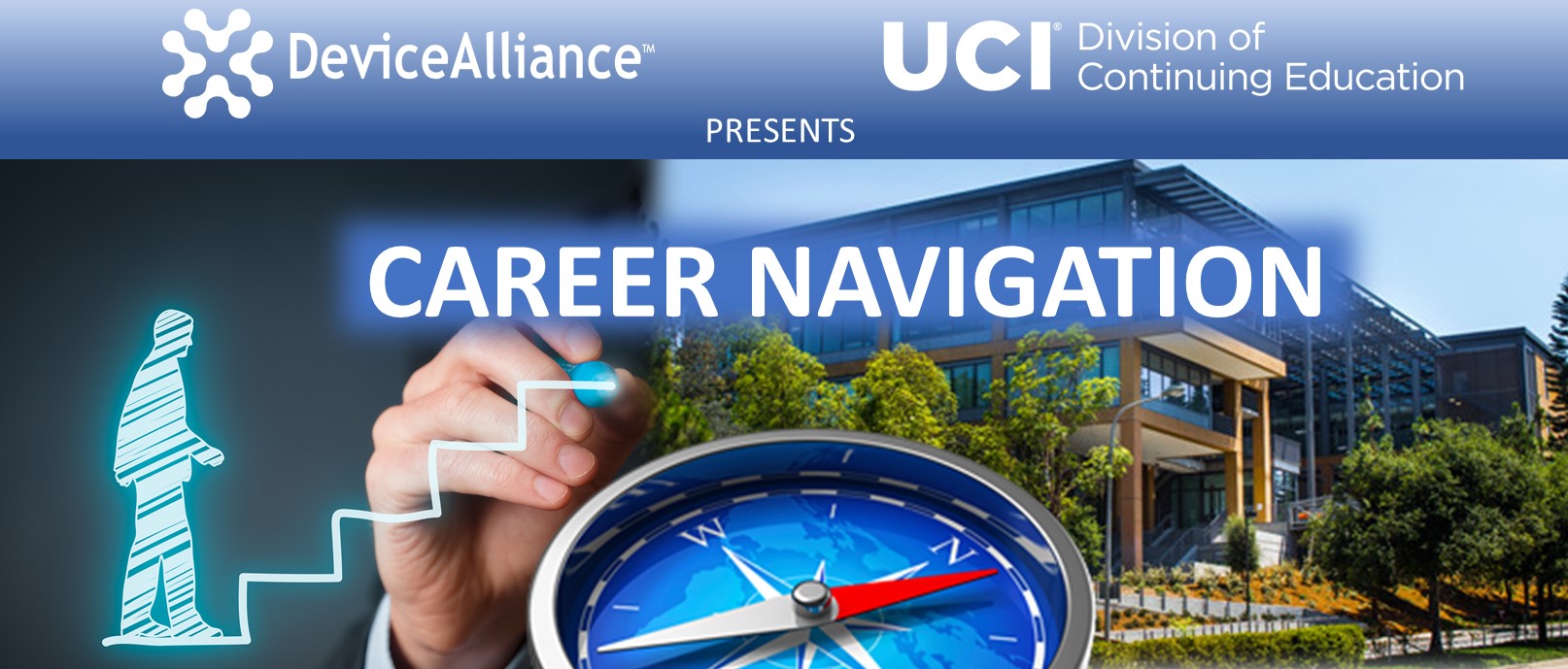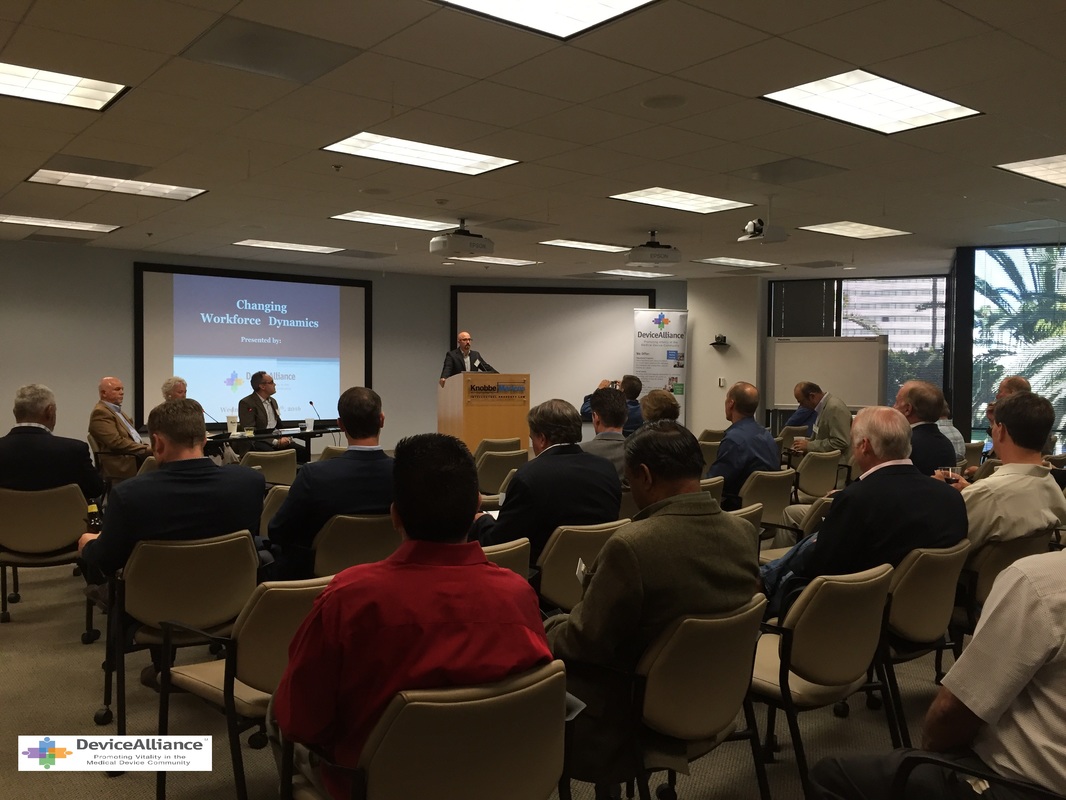|
Leadership is one of the hardest things a person can do professionally. There’s no manual, no playbook, no cliff notes that give leaders the ‘secret sauce’ to successfully lead the charge. Sure there are thousands of avenues one could go to learn more about leadership however at the end of the day it’s still a job that mainly rests on intangible actions like care, empathy, intuition and respect for the very people leaders serve. Leading is often described as a lonely experience. Elisabeth Elliott, a famous author, speaker and missionary once said “Loneliness is a required course for leadership.” The feeling of loneliness at the top is much more common than most of us realize as more than 50% of leaders indicate they have experienced loneliness at one point or another in their career. The stats are even higher for first time leaders at a whopping 70%. When leaders experience solitary the impacts can be devastating. Isolation and loneliness have a direct negative affect on a leaders’ performance which then directly impacts their employees, departments, business units and companies. How is it then leaders find themselves down in the dumps on lonely island? Some of the most common causes are: 1. Forced Isolation- Leaders seclude themselves from the rest of the group by working in an office which can create imaginary barriers between them and their staff. Closing the door actually creates a real barrier that communicates “I’m not available and don’t have time for you”. Regardless if this isolation was intentional or unintentional it produces the same results where the leaders’ staff hesitate to communicate with their boss, or not at all. 2. Decision Making- In most businesses decision making is typically left to the people carrying the torch. When decisions go well all is good in the world yet when decisions produce less then spectacular results the leader is left out in the cold to take the brunt of the responsibility. It’s part of the job but it can also produce isolation at a whole new level which isn’t typically understood or felt by the company’s employees. 3. Don’t Ask For Help- Many times isolation is self-inflicted as leaders don’t ask for help from their teams or peers. There’s an unspoken feeling for many leaders which goes something like, “they expect me to know everything because that’s what I get paid for and why I’m in the job”. Thoughts like this can be incredibly damaging and certainly have no justifiable basis for being correct or healthy. 4. Lack Humility- When leaders act in a way which broadcasts ‘I’m more important than you because I’m in a leadership role’ employees quickly disengage, refraining from putting effort in to build relationships with their leaders or working hard on their behalf. When leaders act this way many times it can be attributed to ego or overcompensating for a lack of confidence. 5. Poor Treatment of Others- One of the quickest ways a leader can find themselves on lonely island is by treating their employees or staff in a poor manner. They lack emotional intelligence. (EQ) When employees feel like they aren’t valued or respected they withdraw which commonly leads to limited interaction and feedback with leadership. The result is a drift occurs in the organization between what leadership wants and what employees are doing. Let’s be clear here, we aren’t about to throw a pity party for our leaders. They’re grown ups right, big boys and big girls who have made the choice to enter leadership on their own accord. So if they’re feeling isolated or lonely than it’s by their own doing, right? Not necessarily. While we’d all love to think the statement above is accurate the reality is that employees do in fact have some ownership in the leadership isolation situation. Employees have a unique ability to see things their leaders don’t, hear things their leaders don’t and help in situations where their leaders would otherwise be clueless about. These five options when implemented help to foster an environment of support and mutual respect, one in which both leader and employee benefits from:
When leaders and employees work together and support one another it significantly reduces the likelihood people of any kind will experience isolation. “There is no respect for others without humility in one's self.” - Henri Frederic Amiel Key Take Away: If you’re feeling lonely as a leader chances are it’s a result of your own doing. Sorry to hit you with the brutal honesty. Loneliness in leadership impacts more people than just yourself. One of the best ways to overcome it is to join a peer group or get a leadership mentor/ coach. Action Item: Feeling like you’re on lonely island right about now? Select two people from your company, one of which needs to be a direct report, and ask them for their candid feedback. Start by telling them how you’re feeling and your desire to do something about it. Get vulnerable and ask for their help while creating an environment where people feel comfortable telling you how they perceive you and your presence as a leader. After you receive the feedback – SHUT UP! Don’t argue about it, don’t disagree. Just listen, observe and take it all in. Thank the person for their feedback and take the rest of the day to smolder on it. With time and patience, you will begin to open yourself up to hearing other people’s perspectives while learning how to take their words and incorporate it into a new you. Now, go get em, champ!
0 Comments
The biggest fallacy in business: if I work hard I’ll eventually get to where I want to be. While hard work and a myriad of other competency-based characteristics are certainly important in growing ones career, they play second fiddle to the #1 most important thing that drives our careers. Recently I found myself engaged in a discussion I hear all too often: “I’ve been trying to land a job doing (insert job title) but I’m not getting any responses from my job applications online.” This was coupled with: “I’m trying to break into (insert industry) but I have no direct industry experience and am having a hard time with people taking my capabilities serious without industry experience.” Both of these situations and the people involved are experiencing the same thing – they haven’t built or leaned on the appropriate people to help them with their career quest. Enter in the #1 career advancement driver: RELATIONSHIPS The people which make up your professional ecosystem are ultimately the ones who will make the difference in your career, not just hard work. Back to our scenario above. Applying to jobs on the internet, or the black hole of death as I commonly refer to it, does have its merits, yet by no means are online job boards the best place to land your dream job. Online job boards are built to do one thing and one thing well – weed people like you out. According to Robert Meier, President of Job Market Experts, only 2% of candidates applying for jobs online actually get an interview. My personal experiences have shown that many people find the online job board process frustrating, cumbersome and verging on a galactic time suck. If we can’t rely on online job boards, what options do we have? Enter back to the stage our good ole friend ‘Relationships’, our #1 suitor for career advancement. Your education, hard work and perhaps charm will only take you so far. Relationships, the people above you, below you and your peers, are the ones that stand to make the biggest impact in your career. When we are in school, soon to graduate and looking for our first opportunity, it’s people that give us the chance, not necessarily our stellar academic performance. Our grades may assist in getting us to the conversation however the driver behind making the decision is someone who wants to give you a shot. Same can be said in corporate America. I remember the first time I was going for a management promotion. My boss at the time told me, “it’s not the people above you that will promote you, it’s your peers and people who report to you.” That really struck home because if my boss were to ask my peers and employees what they thought of me and the response he got was less than stellar the likelihood that feedback would impact my forward progress in my career is likely to be substantial. When you’re neck deep in your career often times it’s who you know, not what you know. The ‘who you know’ opens doors, ‘what you know’ helps you facilitate the work at hand, not landing the job itself. What many professionals miss out on is the importance of building lasting professional relationships. Not every relationship has the capacity to turn into something that is special and will impact your career however if carefully practiced and made a priority it is certainly possible several of your professional relationships overtime can produce fruitful results for both parties involved. Why is it then people don’t spend more time and energy in building their ecosystem of professional relationships? Answer: because it isn’t easy nor is it quick in producing results. Relationships take time and investment. The best relationships have a ‘pay-it-forward’ mentality where both people see the bigger opportunity to help one another without quid pro quo. If you’ve ever read the book ‘Go Giver’ by Bob Burg, it also happens to be my favorite all time book on life and business, you know that relationships and the power of doing for others often times sets the stage for incredible life experience to come. This of course is true in business. Relationships are hard to foster over long periods of time. It takes trust, consistency and energy. Yet when done genuinely relationships have the power to open doors that may not have been available without it. If you’re read this and feel like it’s time for you to step up and grow your ecosystem of professional relationships follow these steps to get on the glory road of professional relationships. 1. Understand what your WHY is for building relationships? (most importantly, what can you offer to others in the process?) 2. Identify 2-3 professionals within your circle of influence, take each of them out to coffee for the purpose of building a better, tighter and more collaborative relationship 3. Go to industry networking events 4. Rinse and repeat (a couple in-person meetings or events is only the start; build into your schedule 2-3 times a month where you make it a priority to meet with people) How do you know the decisions you make for your career are the right ones to make? On February 20th DeviceAlliance and UCI’s Division of Continuing Education will take aim at the in’s and out’s we face throughout our careers in an event called ‘Medical Device Career Navigation’. While we are all very different as people in our behaviors and our mindsets it’s remarkable how those differences bond us in similarity. Many of us will experience the same decisions throughout our career. Do we take the money or the training? Prestigious titles versus meaningful work? Take a step back to hopefully take two forward. Be my own boss or work for someone else? Stay the path of employee or seek opportunities in management? Or even leaving a career to begin anew. The answers to these questions are never easy yet we are all faced them! In this, a powerful opportunity exists - learning from those who have been there before. On the 20th of February in Irvine, CA the event ‘Medical Device Career Navigation’ will embark on a journey through the entire life cycle of a career from college graduate to retirement, and everything in between. Attendees will hear from experienced professionals who represent three career segments:
EVENT SPEAKERS As we work our way through each career segment we will hear and learn first hand from professionals who have been there and done it before. We’ll discover the lessons they learned, decisions they made and outcomes they experienced along the way. We’ll learn from their stories and have opportunities to inquire about our own situations to collect feedback and direction. During this event we will also discuss structured processes for decision making, like ACIP. ACIP, or Alternatives, Consequences, Information and Plans, is a process for collecting information and understanding our options BEFORE we make a decision. Utilizing processes like ACIP and others which are similar can help improve your decision making process. Combine that with experienced anecdotes from people who have done it themselves and we have a recipe for improving our chances of making the best decisions for ourselves while reducing regret or heartache along the way. Save the Date: Be sure to join DeviceAlliance and UCI’s Division of Continuing Education on February 20th, 2018 at 5:30PM for an evening of learning and discussion on ‘Medical Device Career Navigation’. Event details and RSVP click HERE. How to Pick the Right Supplier1/12/2018 The supplier selection process is an important and vital step for any size company. Making the wrong decision leads to countless hours of wasted time and of course money down the drain. A successful supplier selection process is even more important for small and start-up based business where financial considerations are at the top of the pecking order. When looking for a new supplier follow these steps to best position yourself and company for success: 1.Know What You Need Before You Need It Two reasons this is important: 1st – if you don’t know what you need how will you be able to explain it to a supplier? When we know what we need and therefore want we're better prepared to explain those needs while setting expectations for what a successful partnership and outcome looks like. This minimizes miscommunication and opportunity for expectations falling through. 2nd - Waiting till the last minute to find suppliers often leads to decisions being made which may get you out of a momentary jam but leads to larger problems down the road. For this reason it’s vital you are proactive in establishing relationships with vendors and suppliers. 2.Establish Minimum Expectations for Vetting Suppliers Establishing minimum expectations means that you will vet all potential suppliers with the same list of needs, criteria and expectations. This will help to create an even playing field when vetting suppliers and their capabilities. Similar to #1, when you know what you want and have created a way to gather information which allows you to do equal comparisons your chance of making the right decision increases dramatically. If need to create a checklist to hold yourself accountable to making the right decisions then by all means do so. 3.Be Strategic Once you know what you need from a supplier it is important to think about other associated or cross functional activities which need to be done that could be accomplished by a single supplier. The ideal situation is you find a supplier that can do more than just one component of your needs, therefore providing more value in the long run. This also saves time because you have less suppliers and vendors to managed increasing your efficiency and effectiveness. 4.Supplier Identification Referrals, referrals, referrals. Once you know what you need the best approach to finding the right supplier is by reaching out to others in your industry, or industry associations, to learn who they use, and just as important who they don’t use. Take the time to read reviews, gather intel from people you trust before you start calling potential suppliers. While sites like Thomas.net and Google can provide this information it is likely you will quickly find yourself overwhelmed with information. In the end the most useful data is those that are unbiased or comes from experience which is best collected from trusted resources. 5.Outreach and Selection When speaking for the first time with a potential new supplier try to connect with the people you will actually be working with, not just the company’s sales person. This is important because once the relationship is established the majority of your time won’t be spent with their sales people rather those delivering the service or product. What is their communication like? Do they respond quickly and address mistakes immediately? What is their customer retention rate? Find out how long their employees have been with the company too. If the company suffers from consistent turnover that should be a big red flag as you will likely have to be much more involved with this supplier helping coach and direct new employees to ensure the work is done properly. You don't want to be in a situation where you're training your suppliers new employees just so they can turn around and bill you for it. Also, where are you in the pecking order of the level of importance to the supplier? Don’t be fooled, not all clients are treated equal, even if they tell you otherwise. When you know where you stand it is easier to build a relationship based on realistic expectations. In the end, supplier selection should come down to three things, in ranked order:
At the end of the day it doesn’t matter how affordable or cost effective a supplier is, or how nice they are as people. If they can’t perform, and do so consistently, the other two don’t matter. I’ve also found that paying a bit more for the right service and relationship often times is worth the investment it in the long run. As generations continue to evolve in our country so do the thoughts and feelings of people in present day. One thing that has been consistent through the years is the questioning of authority across all sectors: government, public and private. Those who are in a position of authority certainly have a tough job ahead of them as they are constantly under fire by the very people they claim to serve, whether its justified or not. Which leads me to an important question: Does questioning authority help or hurt us? Let’s examine some current situations in our country: Wells Fargo Scandal Wells certainly isn’t the first bank to ever have dealt with a large scandal. Most of us recall the recent recession where banks by the hundreds got rich off of consumers thanks to unscrupulous business practices. Nothing new here. What is new with the Wells Fargo scandal is that it went on for a period of five years with almost zero questioning by internal management. Customers were certainly questioning Wells aggressive sales tactics however I’ve not been able to find one single instance of an internal person in management which stood up and said, “this isn’t right”. Two comments are appropriate here: 1) it’s highly possible this did happen it just hasn’t been publicly released; 2) when you’re an internal employee it can be incredibly scary to blow the whistle on your own employer, especially when your employer is the largest banking institution in the world. In this case, the lack of questioning authority proved to be harmful as thousands of customers were negatively impacted, jobs lost and countless tax payer dollars will be spent and wasted dragging this banking giant through the legal system. CDC & DTaP Vaccine In June of 2016 the CDC (Center for Disease Control) announced in a 13 page report that one of the nationally required vaccines, DTaP - which all children are required to take to enter school, has now been linked to cause autism. In 2016 it is expected that 1 in 68 children will develop autism in comparison to 1 in 150 in the year 2000. Autism is a major issue within our country with its occurrence rate doubling over the last 15 years. While this information is still very new to the general public it was eventually brought to the surface thanks to hundreds, if not thousands, of parents who stood up and demanded transparency from our government. In this case, questioning authority has proven to be helpful as the general public will now have more transparent information in which to make decisions by. Societal Altercations with Law Enforcement It’s a tough time in our country to be in law enforcement. It’s equally tough for many of our fellow Americans who feel their rights have been stricken from them as a result of discrimination. Regardless of which side of the fence you’re on its one of the most sensitive topics in our country today. As shootings during police altercations continue it’s increasingly difficult to discern what is justified versus what is crossing the line, infringing on the rights of the common person. When we question authority in these moments it is vital that we do so with a quest for transparency and truth. This is why I believe Martin Luther King Jr. was so successful as he believed violence was not the answer toward successful activism and change. As a result he was able to lead our country through some of the largest equality reforms in our nations history. In this instance questioning authority is appropriate however the way we go about it can either support or diminish our cause which is why it’s important to think before we act. Kaepernick Takes A Knee Colin Kaepernick, NFL Pro Quarterback for the San Francisco 49ers, started a movement which makes a statement about the inequalities within our country, addressing the law enforcement altercations mentioned above. While he certainly has the right to a peaceful protest are his actions impacting change or causing further issues? Furthermore is the forum in which he’s doing it, employed by private organization (which the NFL is), appropriate? While I may not agree with all the things that go on in our country I still respect the flag and our national anthem as they symbolize the freedoms which were brought about by men and women who gave their lives so we could enjoy a life of choice in this country. There are plenty of other countries in this world who have much harsher living conditions, sometimes I think we forget how good we have it here even with our current day challenges. Are there equality reforms which need to be made, certainly, but we can’t lose sight of what’s important just to make a point. In this situation I believe Kaepernick’s questioning of authority and the way he is going about it is actually counterproductive to what his original cause is. I’m a believer that questioning authority or the status quo for that matter is always a necessity however perhaps the real question isn’t ‘Does questioning authority help or hurt us?’ Perhaps the better question is ‘What is the best way to go about questioning authority to drive actual change?’ Please feel free to share your thoughts and remember to be respectful of other people’s views – it’s what ultimately makes this country great. Last week I had the honor of moderating a speaking engagement put on by Device Alliance in Irvine, CA. If you aren’t familiar with Device Alliance (DA) it’s a Medical Device industry association whose primary focus is providing a supportive platform for the continued knowledge development and relationship building within the medical device industry in SoCal. The purpose of the event on July 20th was simple – to have an informative discussion on ‘Changing Workforce Dynamics’ surrounding these three topics:
As we got into the meat of the content for the evening I started to pick up on a topic that seemed like it was trending in a fair amount of our conversation.
Is the Medical Device industry attracting younger generations at the rate it should? There seemed to be a fair amount of dialogue and a bit of concern from some people present at the event addressing a discrepancy within the industry as it seemed that new grads weren’t flocking to medical devices like they once had. I can’t substantiate this claim to say ‘yes’ it’s happening, or ‘no’ it isn’t, however it’s a powerful topic to discuss because it’s a potential challenge we face in the near term if in fact it is true. So let’s hypothesize for a moment: If new talent, in particular younger generations, are not entering the medical device industry like they used too, what are the potential cause and effects we’re faced with? CAUSES:
EFFECT:
Is the Medical Device industry attracting younger generations? What are you thoughts? Agree or disagree? The craze of the new hot app, Pokémon Go, has taken the world by storm as people meander aimlessly trying to catch little creatures to their hearts content. As users continue to increase and we gain a better understanding of the fanfare this game has adopted an interesting parallel is developing which isn’t necessarily what the game is about at all, yet it’s a great learning opportunity for anyone in a leadership role. Before we get into that, let’s start off with what the heck is this game anyways? What is Pokémon Go? It's a free-to-play, location-based, augmented reality, multiplayer online mobile game. It’s a rebirth of a game that came out originally in the early 90’s which allows you to search for critters, catch them, train them and battle with them. The game that was launched on July 6th uses your phone's GPS to track where you are while making use of a stylized Google map as the primary game board. Your character moves in the game as you walk around in real life, and events and objects – known as PokéStops – are associated with specific locations in the physical world. You can look at the game world through your phone's display which serves as a viewfinder that mixes reality with game objects. What has Pokémon Go accomplished? It took a mere 3 hours to hit #1 on the iPhone app sales charts and a total of 13 hours for the game to hit the top of the US sales charts, bringing in $2M a day in revenue. If that wasn’t impressive enough, its daily user penetration rate (% of people who download the app per day) is 10.81% whereas other blockbuster apps prior were only around 1.67% and 0.84%. The average amount of time a user spends on the app each day is upwards of 45 minutes and the games retention rates are double the industry norm. Lastly, this single app managed to raise Nintendo’s (creater of the app) market share by more than $7 billion, or 25%. Basically it’s minting money left and right for the gamer maker. Why are so many people across such a large age range totally immersed in this app and what could we learn from it to implement in the workplace? After reading that some of you might be thinking “why do we need to learn anything from it? It’s a game, not work.” That’s a valid point and you would be justified in saying that however I think there’s a great learning opportunity for any business owner or person in leadership to take note. People like Pokémon Go because it’s an experience! As leaders in business if we took anything away from what this app has accomplished it should be that the majority of people out there respond positively to things which elicit an interactive, creative and fun experience. Is it then possible to harness the Pokémon Go experience and create that in a business setting? You bet your backside it is, it’ll just take a little creative licensing to make it work. Before we get into the 'how' let’s quickly explore why we would want to do this in the first place? It’s a simple fact that happy employees produce successful companies. When employees are cared for, respected and engaged successfully their productivity levels and general happiness soar in the workplace. When people are happy they take less sick days, require less vacation and go above and beyond on the regular. They don’t need to be told to go above and beyond as they do so naturally. It’s not a utopian day dream to think that this is possible for every company out there because it is indeed possible. It just requires someone to recognize the need for positive change and actually do something about it. Now we’ll take what we’ve learned from the Pokémon Go experience and translate that into the workplace. To create an experience that people will gravitate towards in the workplace we first have to listen and give people what they want, not what you (the leader) wants. Once we know what our people desire we need to deliver on it by creating a work environment and culture that people are drawn too. As Pokémon Go shows us people are willing to adopt things very quickly when it meets their needs and interests. Creating a culture and environment that supports collaboration, appreciation and respect, along with having fun, are good starting points. We also need to keep in mind that over complicating things at work doesn’t necessarily make it a better experience. In fact, the simpler something is the better. Pokémon Go does this perfectly by using something we already know (our phone GPS) and integrates it with our personal space and creative expression. As a result we, the user, are put in the drivers’ seat to create an experience that is catered to our unique interests. What that looks like at work is giving people the autonomy to make decisions and do their job effectively. There’s an added bonus for us in the workplace! We can create an experience that is stimulating and rewarding without the worry of being hit by a car, running into light poles or literally falling on our faces, which have been some wonderful experiences to come as a result of using Pokémon Go. After more than a decade of hiring people on a daily basis I’ve seen a thing or two when it comes to good vs. bad practices as it relates to hiring employees. During that time I’ve also made my fair share of mistakes which have offered up a lot of learning opportunities. What I've learned over the years is that making a hiring mistake can be costly. Hiring an employee is an interesting and vital part of business. Interesting in that the end result is bringing on a new person into your company with the idea that they will fulfill a role to help the company move forward. Vital, because hiring really is one of the most important activities a business can do outside of generating revenue. Without revenue streaming in there is no need for hiring and no company for that matter. The act of hiring is often whimsical and mythical in nature, like a unicorn. Everyone loves to say they’re great at interviewing as they ‘know how to pick em’, they’re ‘able to sniff out the best from the worst’, etc. I always enjoy a good chuckle when I hear comments like this because the reality is that these words often come with hollow ground. In fact, the act of interviewing and hiring is so tough it’s probably best we just get these two stats out ahead of time:
With stats like that you’d think companies would focus more on hiring to improve that area of the business similarly to how they spend endless amounts of time and money on activities like kaizen events and lean initiatives in order to improve yields by a couple percentage points. In the end the numbers don’t lie as they tell us a very sobering story – no one is perfect when it comes to hiring employees. However the quicker we build awareness around our actual performance in the area of hiring the quicker we can begin to improve it. Take a look below and see where you land on these 10 hiring blunders:
Do you or your company fall short in any of these areas? If so you’ve got an opportunity to improve the process and create a great hiring experience for the sake of your new hire and company’s performance in the future. “Leadership is easy!” said no one ever.
Why is it that leadership is so difficult and hard to master? Well, for starters it’s a role that is largely trial and error, skill learning in the moment on the job. That means a lot of what we know and learn over time about being a leader comes from mistakes and blunders people have made before us. My career with leadership was no different. At the age of 23 I found myself in my first ‘management’ role and was scared out of my mind. Notice I used the word ‘management’, not leadership. There’s a big difference in the two. The spark of a great leader is someone who acknowledges and accepts they don’t know it all and asks for help. Simple, yet incredibly difficult to put into practice. As the years went by and my leadership prowess developed, I began to grow more and more confidence in my ability to lead others, influence and develop those around me. Though my confidence grew, I found as time went on the challenges I was faced with grew in size and significance. Confidence, or an inflated level of confidence, can be a big black eye for managers as it can cause people to overlook basic ways of leading that should never go unattended. My father has always told me, “You come from the school of hard knocks, it’s in our family, so don’t fight it, just learn from it.” And learn I did… Looking back on my earlier years in leadership there were three incidences I encountered that go down as the biggest mistakes of my career. While they were indeed mistakes on my part, the learning lessons that came of these situations were priceless to my overall learning and education in the art of leadership. Mistake #1 - Hiring the Wrong People I was a couple years into my leadership role overseeing a technical division. We were growing and seeing some good success and needed to hire people to keep the growth curve climbing north. After interviewing a variety of candidates I became inpatient (a lifelong battle of mine) in that I had not found the ideal person to join our mob squad of high performers. Throughout the interview process there was one person, we’ll call him Negative Norm, who had most of the characteristics I was looking for however it was plain as day to see that he had a hug ego and it was all about what Negative Norm was going to get from us, not what he was going to bring to the team. With my lack of leadership experience leading my decision making I hired Negative Norm and did the ole ‘cross your fingers and hope for the best’ routine. Dang it! What a dumb mistake that was. I still cringe about that experience today even though it’s been many moons since it happened. Not only did Negative Norm come in and create all sorts of disruption to the great culture we had worked so hard to develop on the team over the years but he also soured one of my best employees. We end up firing Negative Norm six months into him joining our team, which probably cost our company a boat load of money in tangible and intangible costs, as well as gave me a disenfranchised team and culture. I then had to deal with a declining all-star on our team who had become transfixed with the notion, thanks to Negative Norm, that he was working too hard and didn’t feel like this was the right place for him. Prior to disruptive Negative Norm entering our team this all-star employee was the quintessential idea of what a great employee should be. Lesson #1 as a Result of Mistake #1 – if you can’t find the RIGHT person, don’t make a hiring decision at all. You’re better off waiting and being patient to find the right person rather than settle for someone who could really make a mess of what you’ve worked so hard to build. For the full article click here My Misery Thanks To Poor Leadership5/20/2016 Ever been in a situation where you witnessed something go from bad to worse and all you could do was stand and watch? Maybe it was bad enough where you had to avert your eyes, turn away and pretend like it wasn’t happening. Watching from a far you might have even said to yourself in the moment, “what are they doing?!” followed by a couple choice expletives.
If you’ve experienced this before then you know EXACTLY how I felt this past weekend watching my Cincinnati Bengals lose the first round wildcard playoff game on Saturday against our arch rivals the Pittsburgh Steelers. Bear with me here as I am going to do my best not to drone on and on about the awful showing my team put up the other evening as there’s actually a great learning lesson that came from it which is incredibly applicable to our professional lives. Applicable indeed, especially if you are in a leadership position or hope to be in a leadership role at some point in the near future. Poor leadership impacts everyone around it, everyone being you, me, the company, the customer, in this case the fans, etc. In business this typically shows up in the form of poor communication, discipline issues, bad decision making, people working in silos, losing one’s ‘cool’ and under performing in key situations. As for myself, I’ve done a couple of these in my leadership tenure and learned a lot from it so I can share first hand that these are some of the biggest leadership killers out there. Ironically, those characteristics of poor business leadership I just shared are also the things we witnessed in Saturdays NFL playoff game when the Bengals single handedly gave away their win to the Pittsburgh Steelers. First, let me say that if you’re reading this and you happen to be a Steelers fan…congrats on the win, well played. You all deserve to keep your season alive. Now that I feel better about myself for playing nice and being a good loser I’ll continue my rant on Cincinnati’s poor leadership. Before we move into the meat of things, it’s important I set the stage with some background info in the event you’re not up to date on your Cincinnati Bengals trivia. Heading into Saturdays game against the Steelers, my Bengals came to the table with some stats which certainly point in the direction of this game being incredibly important. Here’s the bottom line on the boys in orange and black:
Needless to say, it’s tough being a fan of Cincinnati at the moment. Regardless of your thoughts and feelings on the NFL, the stats above tell a very clear and frustrating story. It seems as if the executive team and owners of the Bengals franchise overlook these statistics of poor leadership performance, while as a fan looking from the outside in its plain as day to see the issues and how to resolve it. The Cincinnati Bengals (like many businesses we’ve all worked at) struggle to realize that their inability to be successful is a direct result of their leadership. A lack of good leadership makes it difficult for even the best and brightest talent to perform at a high level. Back to Saturday’s game. Cincinnati’s loss will go down in the books as a complete and utter meltdown. Let’s examine the last two minutes of the game so we know what happened and why the Bengals lost:
The last two minutes of that game came down to a team being able to perform under pressure (Steelers) and a team imploding from their own lack of discipline and selfishness. (Bengals) Since the game, commentators have cited the players as the issue as the reason why the Bengals lost. I happen to have a different perspective. When teams win or businesses succeed, the best leaders are always quick to give praise to their team indicating the group effort and high performance as the reason for the success. However when good leaders are faced with unfortunate circumstances rather than cast that blame on the team they shoulder responsibility for themselves. That’s what good leaders do…they give praise for a job well done and take blame when things go bad. When it comes down to it leading is more than just a title and a seat up on top. To be good in leadership you first have to care about those around you, then build a platform for people to be wildly successful. Excuses, mediocrity, bad attitudes, a lack of accountability, what have you, have no place in this world for those who want to be successful. To be great you must think and act for others first, yourself always second. While I never would wish bad things to happen to another individual, such as Marvin Lewis the Head Coach of the Bengals, my hope is that ownership wakes up before the beginning of next season and makes some changes. Without those changes we’ll continue to be a mediocre team falling short of what could be a great program for years to come. As they say, “There’s always next year”. About the AuthorTravis Smith is the founder and managing director of Square-1 Engineering, a medical device consulting firm, providing end to end engineering and compliance services. He successfully served the life sciences marketplace in SoCal for over 15 years and has been recognized as a ‘40 Under 40’ honoree by the Greater Irvine Chamber of Commerce as a top leader in Orange County, CA. Categories
All
Archives
April 2024
|
Visit Square-1's
|
|












 RSS Feed
RSS Feed


